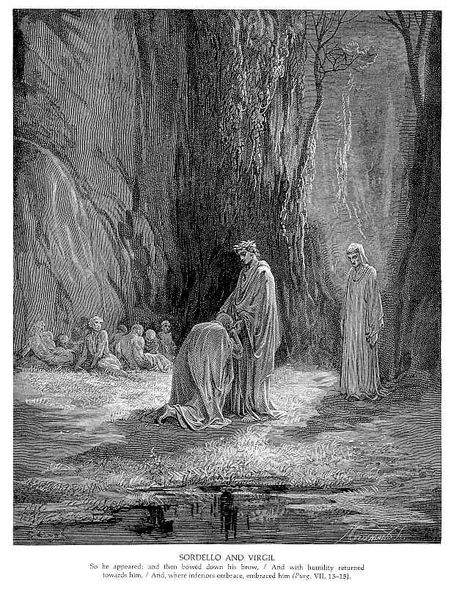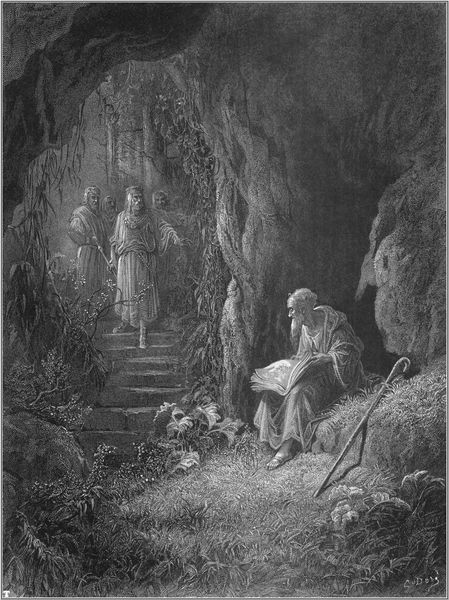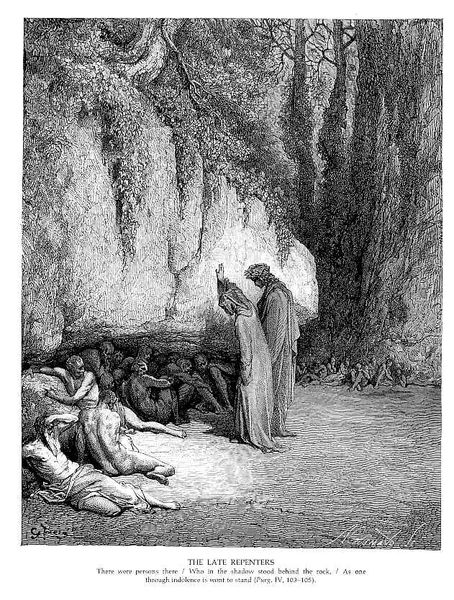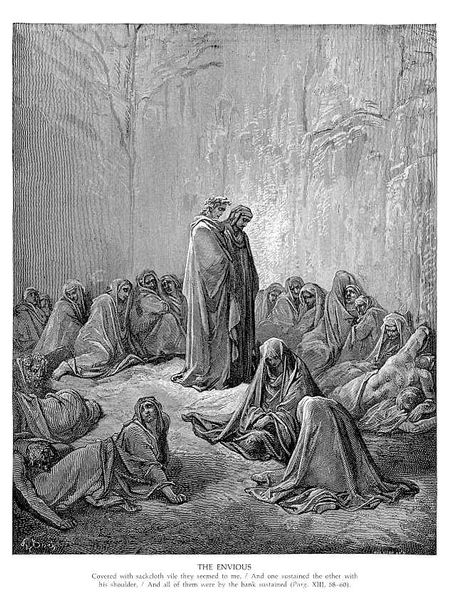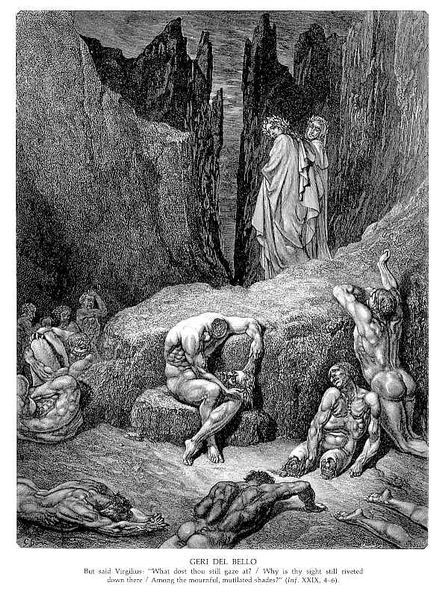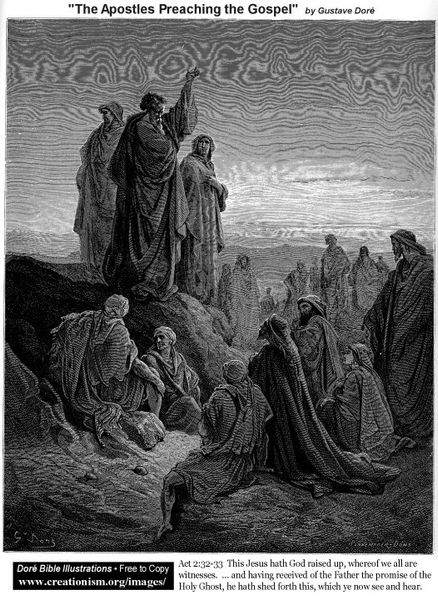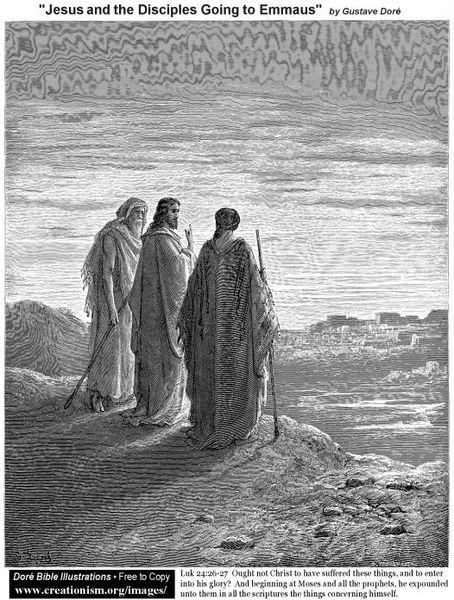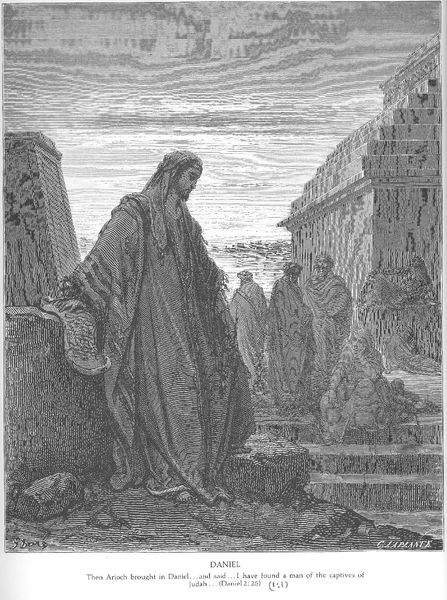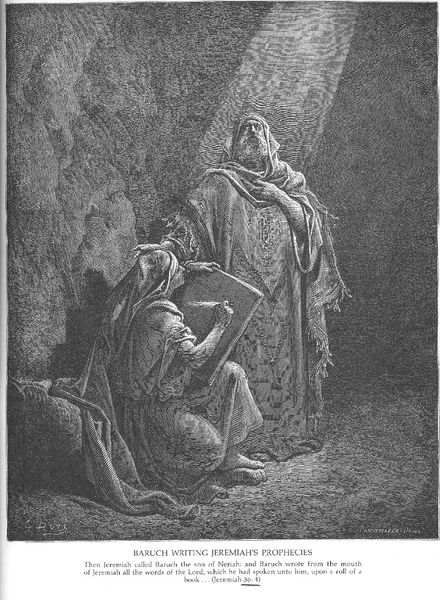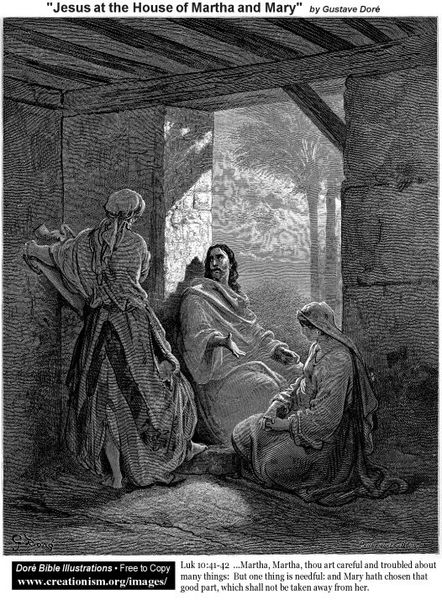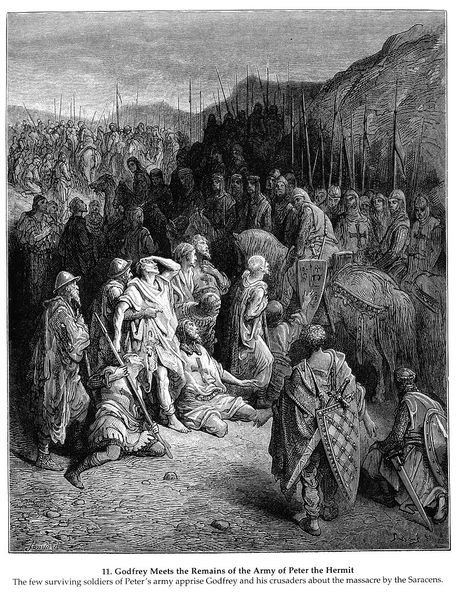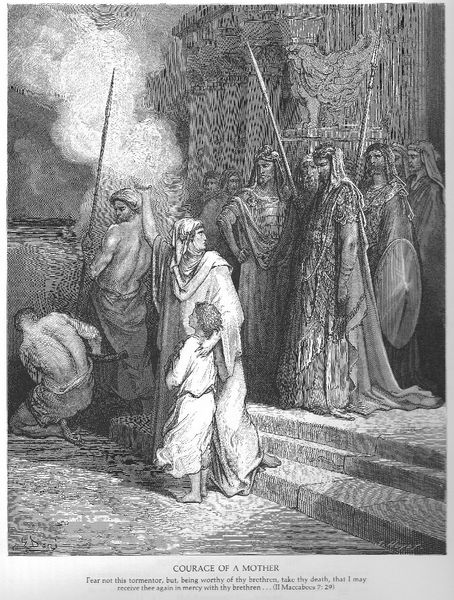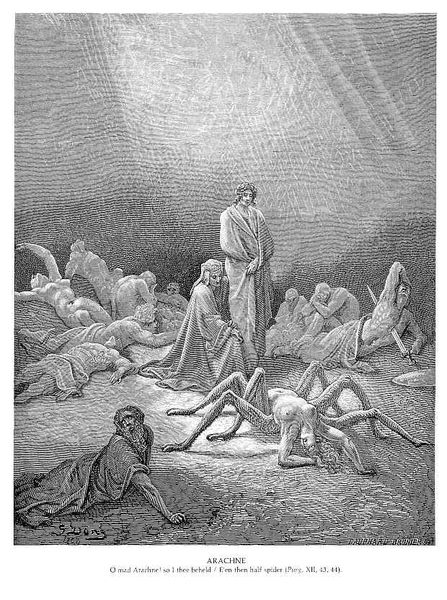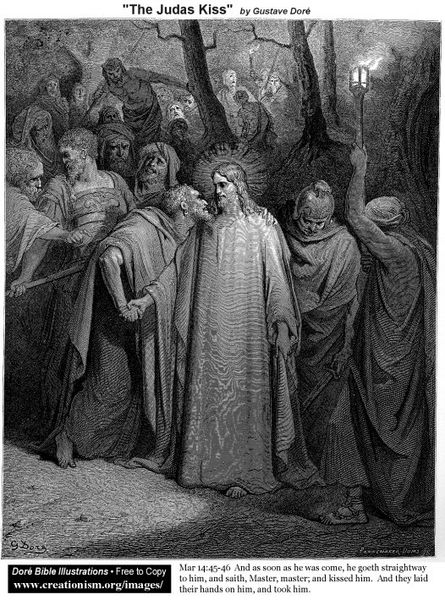
drawing, print, engraving
#
drawing
#
narrative-art
# print
#
landscape
#
charcoal drawing
#
figuration
#
romanticism
#
history-painting
#
charcoal
#
engraving
Copyright: Public domain
This engraving, The Gluttons--Forese, was made by Gustave Doré, probably in the 1860s. The image is made through the laborious, and very skilled process of etching, using a sharp needle to cut lines into a metal plate, which is then inked and printed. Doré, who was a prolific book illustrator, here depicts a scene from Dante’s Purgatorio. The figures are gaunt, their faces marked by suffering, and their bodies shrouded in draped fabric. The cross-hatching of the etching gives the scene a somber, almost claustrophobic atmosphere. The act of engraving, with its precise, controlled marks, seems an odd choice for representing such abject misery. Yet, Doré was clearly interested in the contrast. He sought to ennoble and elevate the status of the working class, reflecting his social consciousness. The very act of creating this image—the hours of labor involved in its production—mirrors the arduous journey of the souls depicted. It’s a reminder that even in the face of despair, craft and creation can offer a form of redemption, and an opportunity for social commentary.
Comments
No comments
Be the first to comment and join the conversation on the ultimate creative platform.
